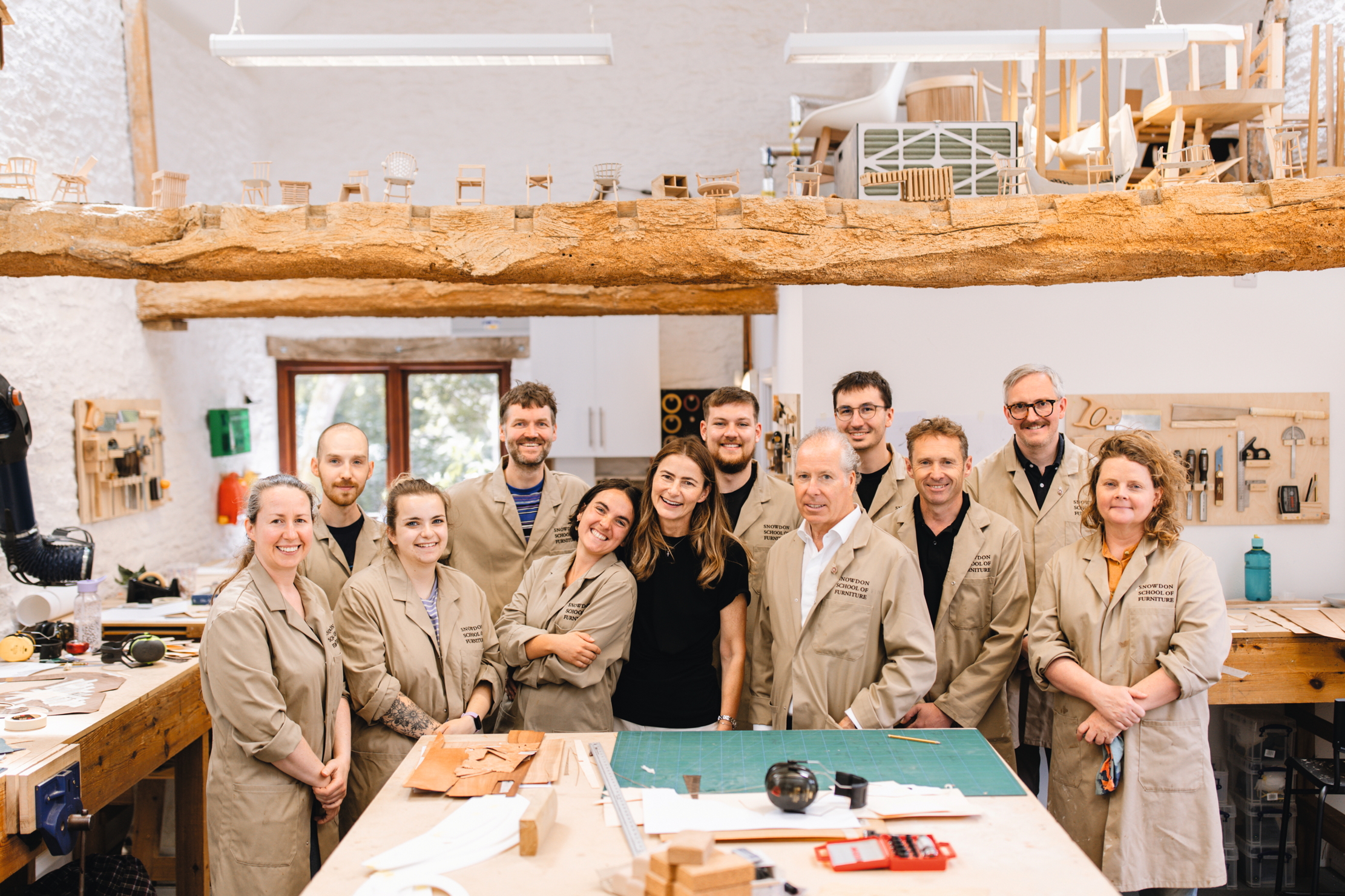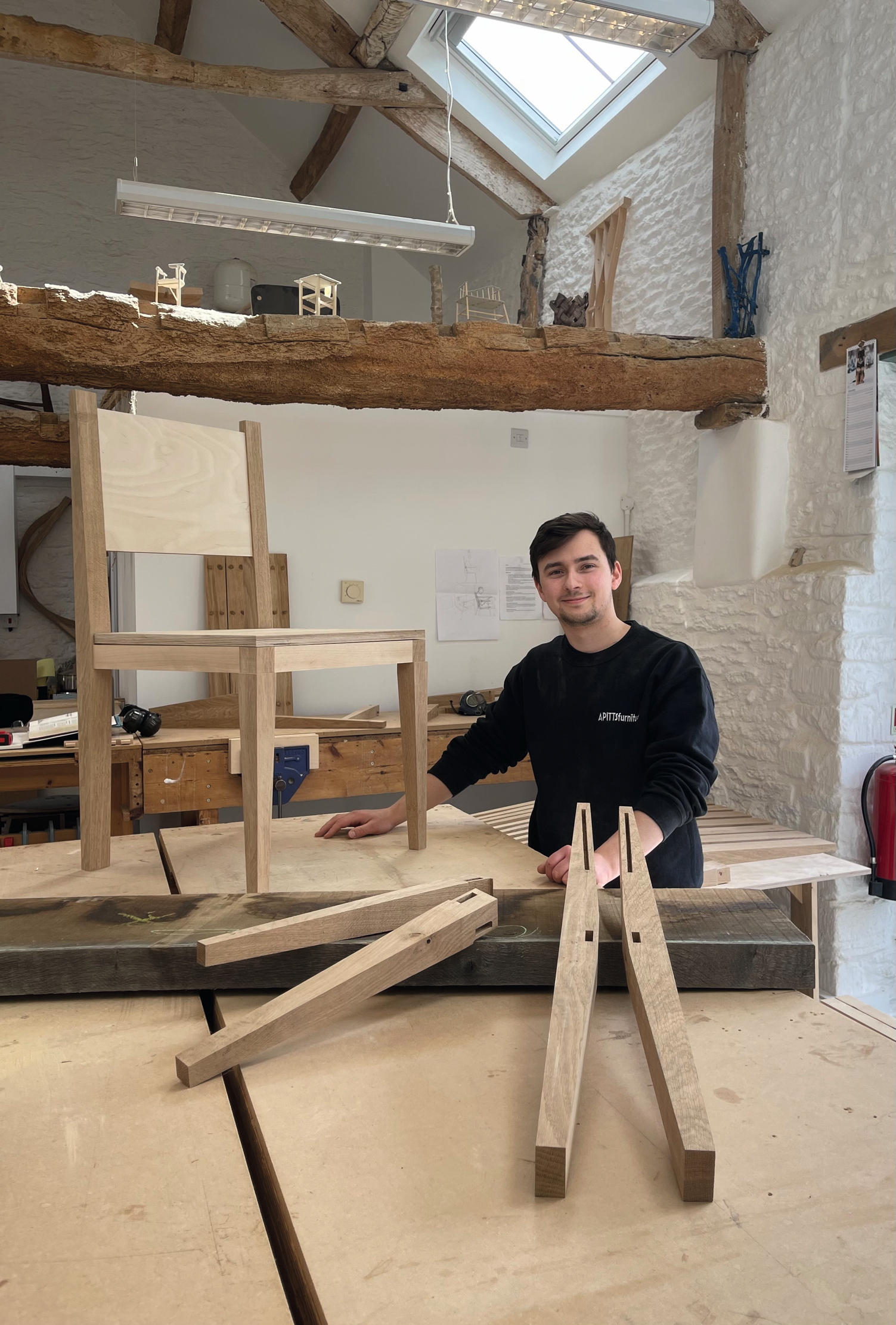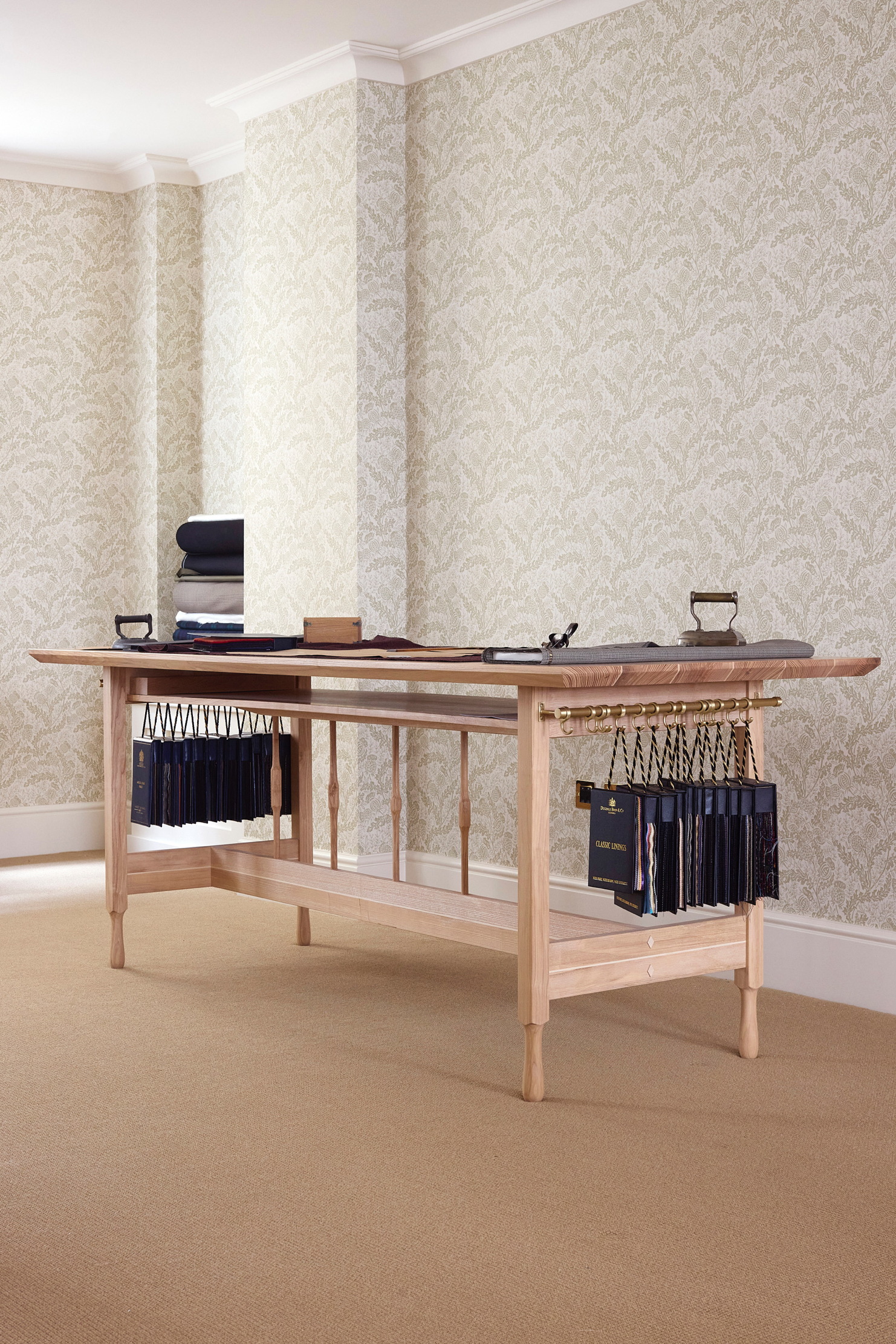At the Snowdon Summer School, the future of design lies in the traditions of the past
'It was the first time that I had ever been around people who shared my interest in making furniture at such a high level — and who shared my passion for fine furniture.'


'Crafted’, ‘sustainable’, and ‘authentic’ are words in the copywriter’s lexicon that can mean pretty much anything they want them to. It seems that many things can be crafted now, not only treasured objects, but also coffee, beer and bread. They can also be ‘locally sourced’ and made somewhere ‘authentic’ and possibly even ‘storied’.
The problem with the new ubiquity of the word ‘craft’ is that it makes it sound effortless. The reality is that it’s exceptionally hard, as anything is that requires time, dedication, aptitude and thousands of hours of training. John Ruskin observed that fine art is a process that involves ‘hand, the head, and the heart’. David Hockney added the eye to the mix. There’s no doubt that the slow creep of technology has loosened the ties between all four, creating an impression that ideas brought to life in the virtual world will also work in reality. It’s a belief that soon becomes unstuck when construction methods and materials are put to the test.
It’s the possibilities of traditional cabinetmaking and marquetry that mesmerise the students at the Snowdon Summer School, as well as at the more extensive Create programme, which covers everything from woodland management through to the workshop. Founded in 2016 by Lord Snowdon, first at Messums West in Wiltshire and later at Dumfries House in Ayrshire, the school now has a permanent home at the Barley Court on the Highgrove estate in Gloucestershire.

Alex Pitts, with one of the chairs he produced for The King's Coronation in 2023.
Both courses are part of a nexus of educational activities provided by The King’s Foundation, the charity founded by The King in 1990 when he was Prince of Wales and where Lord Snowdon now serves as vice-president. Among many other disciplines, it offers a proliferating array of courses in traditional arts and crafts, as well as hospitality and sustainable food systems. Lord Snowdon’s passion is borne out of hands-on experience both of craft and building a business; trained at John Makepeace’s School for Craftmanship in Wood at Parnham in Dorset, he established first his own workshop and then a furniture brand under his own name.
The work of the foundation opens up a whole new world of opportunities for students. For Alex Pitts, who was on the first ever course in 2016, the experience was transformative. ‘It was the first time that I had ever been around people who shared my interest in making furniture at such a high level — and who shared my passion for fine furniture.’
Previously, Alex had been a furniture restorer and his experience inspired him to apply for Rycotewood, a furniture-making college in Oxford. He now runs his own business in Kent, making furniture to commission, and has a client list that includes several West End hotels. It was also through the summer school that he came to make one of the chairs for The King’s coronation in 2023.

Some of the furniture commissioned by Emma Willis for her Mayfair showroom.
Emma Willis, the owner of the eponymous shirt company, recently commissioned alumni to design and make furniture for her Mayfair showroom. Elsewhere, there have been plenty of other career catalysts, most recently for Emily Hurst, a graduate of the Chanel & King’s Foundation Metiers d’Art Millinery Fellowship, a 35-week embroidery programme.
Exquisite houses, the beauty of Nature, and how to get the most from your life, straight to your inbox.
On the strength of her work in reviving the use of straw in millinery, she was awarded a £10,000 bursary by Ascot Racecourse, which she is planning to use to help her establish her own millinery brand. It is emblematic that one of the course tutors at the Snowdon Summer School, Jonathan Rose, started his own business with funding from The Prince’s Trust.
The school does more than teach skills and create career opportunities; its most significant impact is in raising awareness of the possibilities when human skills and instincts are employed in design and manufacture. In the past, it was a philosophy that has sometimes been seen as reactionary, even Luddite. Increasingly, however, the products of traditional craft skills are demonstrating that it makes all the difference between beauty and mundanity.
